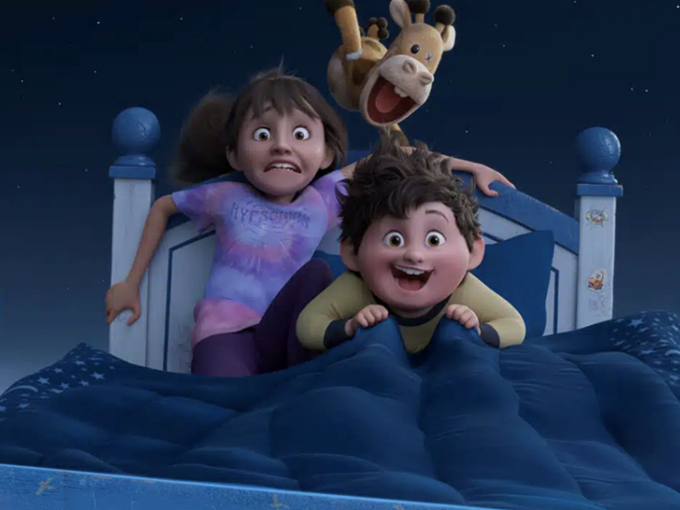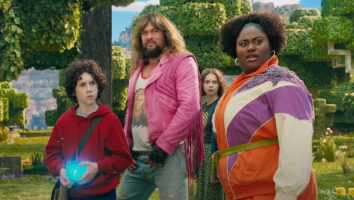By: Emily Horgan
Netflix is in the business of animated movies, whether the company likes it or not. Streaming is the datafication of the DVD player after all, so just as we used to know how many DVDs had sold, now we know how much each content title is played—and when it comes to kids movies, it’s a lot.
Nine of the top-10 films in the US streaming market last year were animated features, according to Nielsen Streaming Content Ratings. And unsurprisingly, established studios Disney, DreamWorks and Illumination continue to dominate this supply chain. That’s one of the reasons why my team has recently expanded the Netflix Kids Content Performance Report to look more specifically at animated movies as a segment.
The backbone of Netflix’s animated feature lineup are films coming from DreamWorks and Illumination. The streamer has a longstanding overall deal with parent company Universal that was renewed and expanded at the end of last year. Netflix happily leverages it to add stellar output from these studios to its offering as little as eight months after the films are in cinemas, so they still have potential to be riding the coat tails of lofty theatrical marketing campaigns and franchise activations. And there’s no question that these movies drive a significant amount of engagement for the platform, to the tune of about three billion hours viewed globally in 2024, in fact. But ultimately, depending on a single third-party source for billions of hours of engagement is risky business for any streamer.
And Netflix isn’t ignorant of this, of course. The company has been focused on cracking animated features for a number of years. In 2020, then-CEO Reed Hastings spoke about the ambition to “beat Disney in family animation”. Year in year out, we’ve seen a bevvy of different original animated films land at the streamer. But it’s been a struggle to match the engagement delivered from Universal’s bounty.
Netflix has managed to make some progress, hitting high with The Sea Beast in 2022, and higher still with Leo in 2023. Leo, in particular, showed results that approached the level of engagement delivered by big movies running on the benefit of a full cinema release. And Adam Sandler as the voice cast lead will undoubtedly have played a part in this.
However, Netflix’s most recent high-profile animated feature Spellbound did not continue the momentum. Coming from Skydance Animation, which is helmed by ousted Pixar exec John Lasseter, the film boasted an impressive lineup of Hollywood voice talent and a soundtrack from Disney legend Alan Menken. It launched almost exactly a year after Leo, hitting Netflix globally ahead of US Thanksgiving, and giving families a new movie to enjoy into the holidays. Despite this, Spellbound drove 60% less global viewership than Leo, per Netflix’s Engagement Reports.
And this presents a quandary for Netflix. The streamer is committed to a multi-year deal with Skydance Animation, whose parent company is now moving forward with its Paramount Global acquisition. One natural question is whether a streaming-first animated feature can ever match output from Universal and Disney in impact, buzz and engagement without the benefit of a theatrical release. Meaningfully collaborating with cinemas remains something that Netflix is staunchly against.
Netflix is still very committed to animated features, though. Management spoke about this in relative depth on the company’s latest earnings call. There have been hits, but more are required. A diversified pipeline of both licensed and original movies is the goal (as happens in other genres). Ted Sarandos highlighted In Your Dreams (pictured), produced by the team behind Go! Go! Cory Carson, as the next big swing of the year. His shoutout notably excluded Pookoo (Skydance Animation) and The Twits (Roald Dahl Story Company), which were both set for 2025 releases last we heard.
Despite that commitment, however, the numbers don’t lie. The data converges to show a consistent trend: Universal’s animated theatrical films perform far better on streaming than Netflix’s original animated features. While Leo showed some promise, the significant underperformance of Spellbound hints at systematic limitations of the streaming-only model as it currently stands. Netflix might continue to fight the established ecosystem, but without a theatrical release, there is likely an engagement ceiling when it comes to original animated features.
And as Netflix evolves from its subscriber-obsession era to an engagement-obsession one, that hard limit is likely to become less and less comfortable.
Emily Horgan is an independent kids media consultant with a specialty in streaming and YouTube. She is the author of the Netflix Kids Content Performance Report and the Kids StreamerSphere newsletter, as well as co-hosting the Kids Media Club Podcast.






















